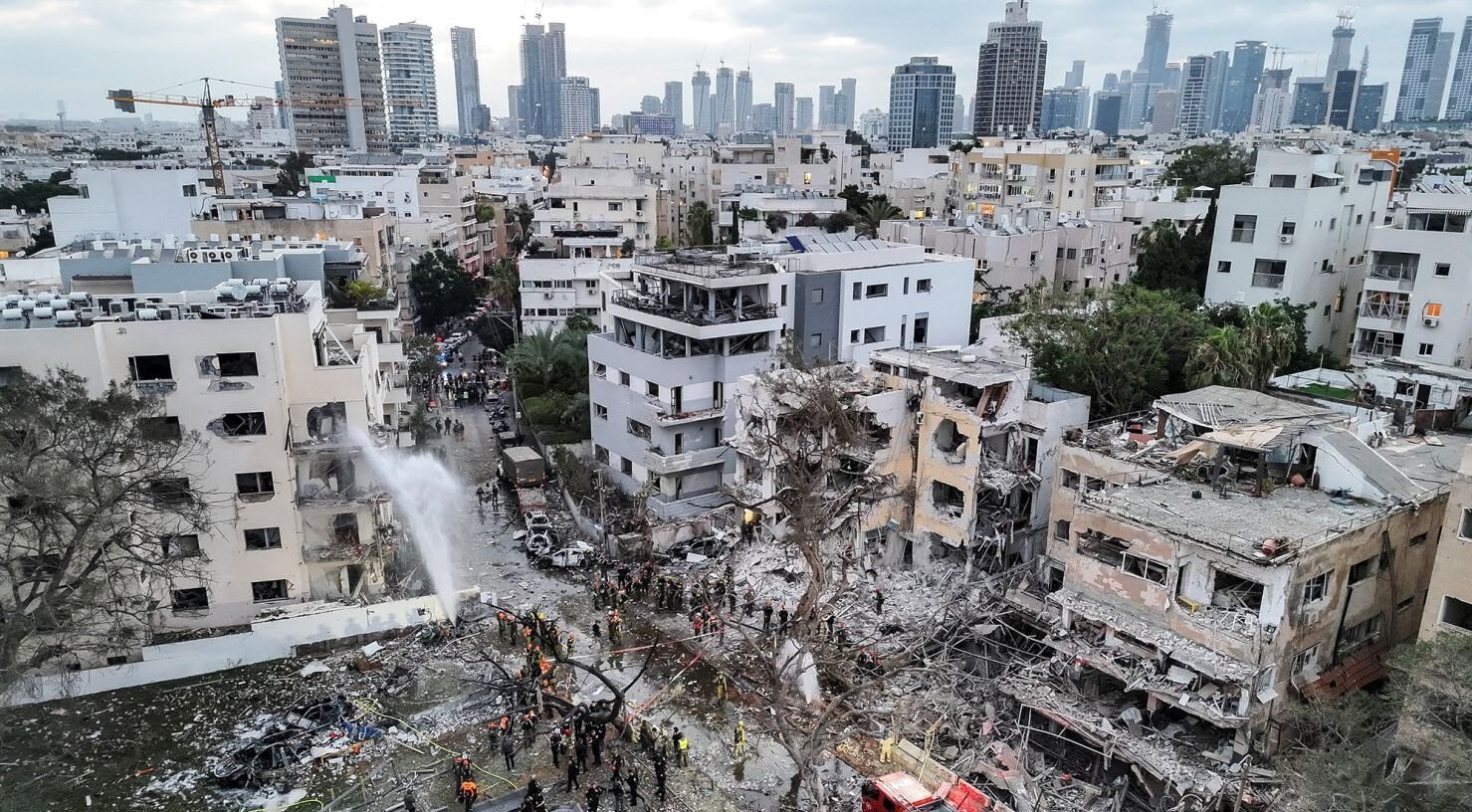In an alarming escalation of Middle East tensions, Israel has launched a major military offensive dubbed Operation Rising Lion, targeting key components of Iran’s nuclear infrastructure. The move has triggered a cascading series of retaliatory strikes, civilian casualties, diplomatic tensions, and global economic disruptions, marking the gravest flashpoint between the two regional rivals in decades.
The Initial Strike: ‘Existential Threat’
Early Friday morning, the Israeli Air Force launched a series of precision strikes against Iran’s nuclear enrichment facilities at Natanz, Isfahan, and Fordow. Prime Minister Benjamin Netanyahu, in a televised address, said the action was a “targeted military operation” intended to neutralize what he described as an “existential threat” to Israel.
“This operation will take as long as needed to complete the task of fending off the threat of annihilation against us,” Netanyahu declared, referencing Iran’s alleged proximity to nuclear weapons capability.
Casualties and Chaos
The toll has been devastating. According to official Iranian reports, at least 224 people have died—70 of them women and children—with more than 1,277 injured. Israel has confirmed between 18 and 20 casualties on its side, along with over 390 wounded, as cities across both nations continue to experience air raid sirens and missile strikes.
Residents of Tehran have fled in droves following the attacks, triggering massive traffic jams on roads leading to northern provinces. Fuel shortages and ATM withdrawal limits have added to the atmosphere of panic. Israeli cities such as Tel Aviv and Jerusalem have been under continuous alert as retaliatory missile fire from Iran lights up the skies.
Iran’s Response
Iran retaliated late Friday, launching a salvo of ballistic missiles toward Israel. Explosions rocked key Israeli urban centers, forcing the closure of Ben Gurion International Airport. Iran’s Supreme Leader Ayatollah Ali Khamenei, in a recorded message, condemned the strikes and vowed harsh revenge.
“We will not allow them to escape safely from this great crime they committed,” Khamenei said, referring to the loss of high-ranking officials including IRGC commander Hossein Salami and military chief Mohammad Bagheri, both reportedly killed in Israeli strikes.
Global Fallout
The international community is on high alert. G7 leaders issued a joint statement calling for de-escalation while reiterating that Iran must not be allowed to acquire nuclear weapons. French President Emmanuel Macron confirmed that U.S. President Donald Trump had proposed a ceasefire plan during the G7 summit in Canada.
“There is indeed an offer to meet and exchange… especially to get a ceasefire and then kick-start broader discussions,” Macron told reporters.
Trump cut short his G7 visit, returning to Washington to deal with the crisis. He issued a stark warning via Truth Social: “Everyone should immediately evacuate Tehran.” He also reiterated that Iran “CAN NOT HAVE A NUCLEAR WEAPON,” and blamed Tehran for rejecting U.S.-led nuclear diplomacy.
Meanwhile, China has ordered its citizens to leave Israel, and multiple countries, including Iran and Israel, have suspended international flights. The Middle East’s airspace remains heavily restricted, raising concerns of a broader regional fallout.
Diplomatic Delays and Coordination
U.S. House Speaker Mike Johnson has postponed his visit to Israel scheduled for June 22, citing the “complex situation currently unfolding.” Netanyahu emphasized that Israel is working in “full coordination” with the U.S., stating that he speaks with Trump “almost daily.”
In his words, “We are sending them [Iran] back a very, very long time. We have targets, and we’re going to do a root canal here.”
Humanitarian and Economic Crisis Looms
With over 1,500 combined casualties and critical infrastructure damaged, the humanitarian toll is mounting. Hospitals in Tehran are reportedly overwhelmed. Israel’s decision to shut down its airport has left over 50,000 travelers stranded. Economically, markets across the globe are reacting with anxiety. Oil prices have surged, and equity markets have plummeted, particularly in Asia and Europe.
What Lies Ahead?
As of now, no ceasefire has been reached. The next few days will be crucial as back-channel diplomacy intensifies. The risk of further escalation remains dangerously high. Analysts warn that without immediate de-escalation, the region could slide into a broader war, involving other major powers.
For now, the world watches and waits—hoping that diplomacy can prevail where military might has so far failed.







